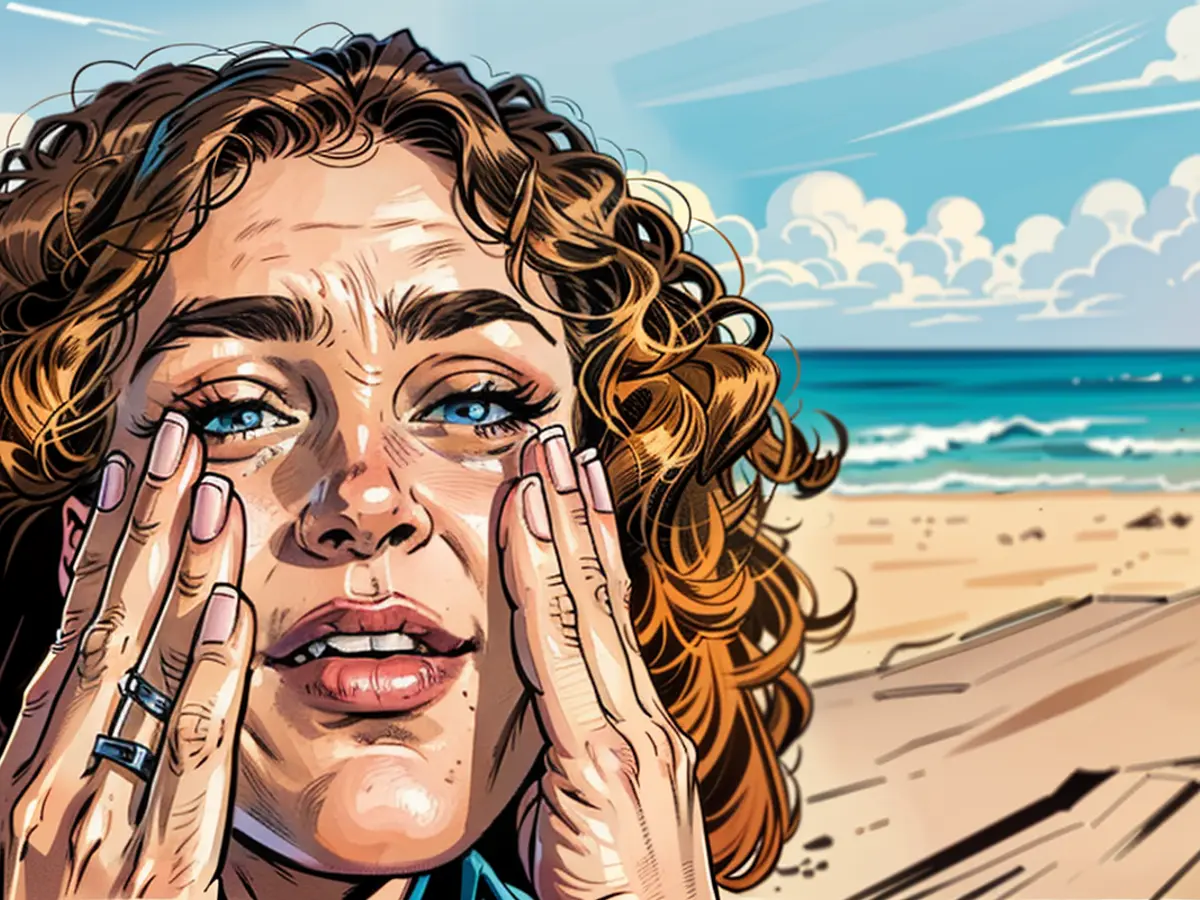UV protection - Stiftung Warentest: Every second sunscreen tested is weak
UV Rays are harmful to the skin – aside from skin aging, they can cause skin cancer. To protect the skin from the sun, a dermatologist, Yael Adler, advises following this simple rule: "Avoid, cover, cream." Therefore, it is also advisable to protect the skin with sunscreen with a high UV protection factor (SPF 30, 50 or 50+) not only for a visit to the pool.
Stiftung Warentest examined 20 sunscreens with SPF 30 to 50+. Disappointing result: Every second sunscreen had weaknesses. Fortunately, consumers do not have to dig deep into their pockets for good sun protection. The two best creams in the test belong to the most affordable ones. The "Sun D'or Sun Spray" from Edeka for 2.15 Euro per 100 milliliters and the "Sunsun Sun Spray" from Rossmann for 1.95 Euro per 100 milliliters.
Stiftung Warentest: Six sunscreens do not effectively protect against UV rays
Six products received a "5" rating in the test because they did not maintain the stated UV protection. In theory, sunscreen should reliably protect against UVB rays, which are responsible for sunburn, and against UVA rays, which prematurely age our skin and can cause skin cancer.
The sunsprays from Lush and i+m, according to Warentest, should not even be applied, as their protective effect is so insignificant. Surprisingly, the most expensive product in the entire test is Lush's "Million Dollar Sun Cream," priced at 42 Euro per 100 milliliters.
The good news for consumers: Lush apparently reacted to the Warentest result and removed the products from their shelves.
The test as a whole shows: Some creams that passed the test last year may not impress this year, or vice versa. Consumers cannot rely on certain brands, and expensive creams are not necessarily the better ones.
Four sunscreens contain health-critical softeners
In this year's test, Stiftung Warentest also investigated whether sunscreens contain health-critical softeners. At the beginning of the year, authorities found increased amounts of a degradation product of softeners in urine samples, which could originate from sunscreens. The Warentesters found the softener Di-n-hexylphthalat in four products, including those from Ladival and Müller. The softener is banned in the EU cosmetics regulation. It could have entered the creams through contamination, according to the Warentesters. According to the assessment of the Federal Institute for Risk Assessment, the detected concentrations do not pose an acute health risk.
In general, apply plenty of sunscreen. For a person with a height of 1.80 meters, three tablespoons of sunscreen are necessary to be protected from head to toe against UV radiation.
For the detailed (paid) test, see Stiftung Warentest!
Stiftung Warentest warns against six sunscreens that do not effectively protect against UV rays, including the expensive "Million Dollar Sun Cream" from Lush. On the contrary, the most affordable sunscreens "Sun D'or Sun Spray" from Edeka and "Sunsun Sun Spray" from Rossmann received the best ratings. Moreover, four sunscreens tested contain health-critical softeners like Di-n-hexylphthalat, which is banned in the EU cosmetics regulation. Despite these findings, it is essential to apply enough sunscreen to adequately protect against UV radiation, which is necessary for avoiding skin aging and skin cancer.








